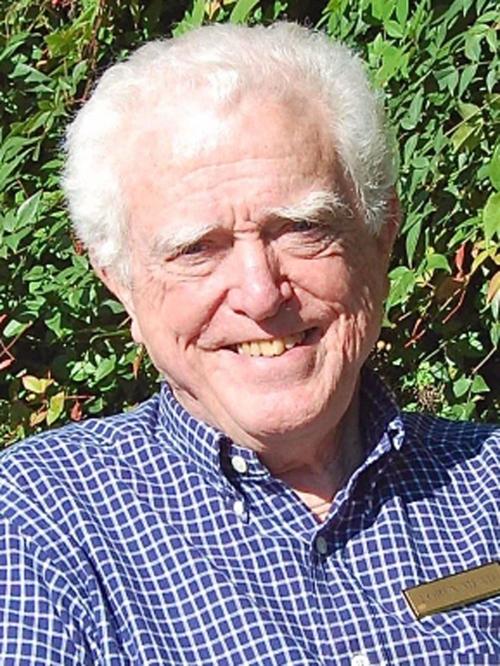Born in Florence, South Carolina, on February 17, 1930, Loren B. Mead, graduated from the University of the South, and later earned an MA from the University of South Carolina. After teaching in the Wil Lou Gray Opportunity School for Adults for two years, Loren attended Virginia Theological Seminary and received his Masters in Divinity in 1955 and was ordained an Episcopal priest.
He was an educator, consultant, and author who worked to strengthen religious institutions, especially of local congregations. Mr. Mead collaborated with lay people, clergy, executives and bishops, teachers, and others committed to ministry. A pioneer in congregational studies, he brought together the methods of organization development consultation and applied research for working with congregations.
Born and raised in the segregated South, Loren worked for racial justice and reconciliation throughout his career. Besides marching with a delegation of white pastors in support of Martin Luther King after the death of Medgar Evers, he played a leading role in the desegregation of Chapel Hill.
As an author, he published four best-selling books on the future of the church; The Once and Future Church (1991), Transforming Congregations for the Future (1994), Five Challenges for the Once and Future Church (1996), and Financial Meltdown in the Mainline? (1998). In addition to a number of articles and chapters in edited works, he is also the author of New Hope for Congregations (1972), Critical Moment of Ministry: The Change of Pastors (1987), The Whole Truth (1987), and More than Numbers (1994). His most recent book, The Parish is the Issue refocused on his work with congregations as the future direction.
In his work with churches, Mead developed a number of resources on the role and work of the interim pastor, the use of conflict management, clergy stress and burnout, concepts of change and development in congregations and their judicatory systems, training methods for executives and bishops. He was concerned for the personal, professional, and spiritual development of lay and clergy leaders, and especially for the creative possibilities for churches and leaders at moments of transition in role.
Mead’s work with the Alban Institute was informed by his career in the parish ministry. After serving in several parishes in North and South Carolina, as well as the UK, until the then Presiding Bishop of the Episcopal Church, John Hines, asked him to direct that denomination’s experimental “Project Test Pattern” for a three-year period. In 1974, Mead founded the Alban Institute, Inc., developing its national, multi-denominational network of research, publishing, education, and consulting.
Mead later received honorary degrees from the University of the South, Virginia Theological Seminary, Berkeley Divinity School at Yale, and The Episcopal Divinity School. In 1999, he was named the fifth recipient of the Henry Knox Sherrill Medal by the Episcopal Church Foundation.
Mead’s work lives on in the church. Alban at Duke Divinity, the successor to the Alban Institute, continues his agenda of research and consulting. Institutions like the interim pastorate and the Consortium of Endowed Parishes continue to express the concern for the life of local religious communities that was the heart of his professional vocation.

